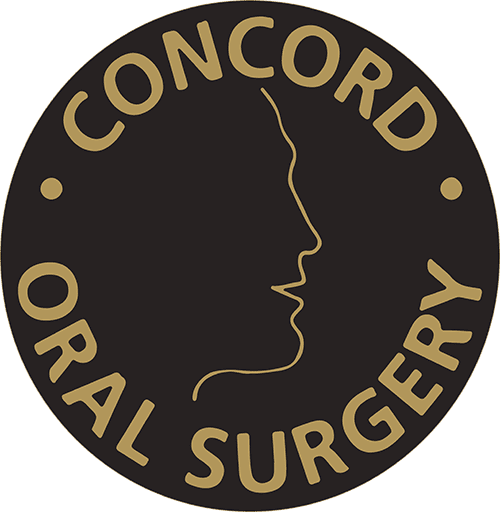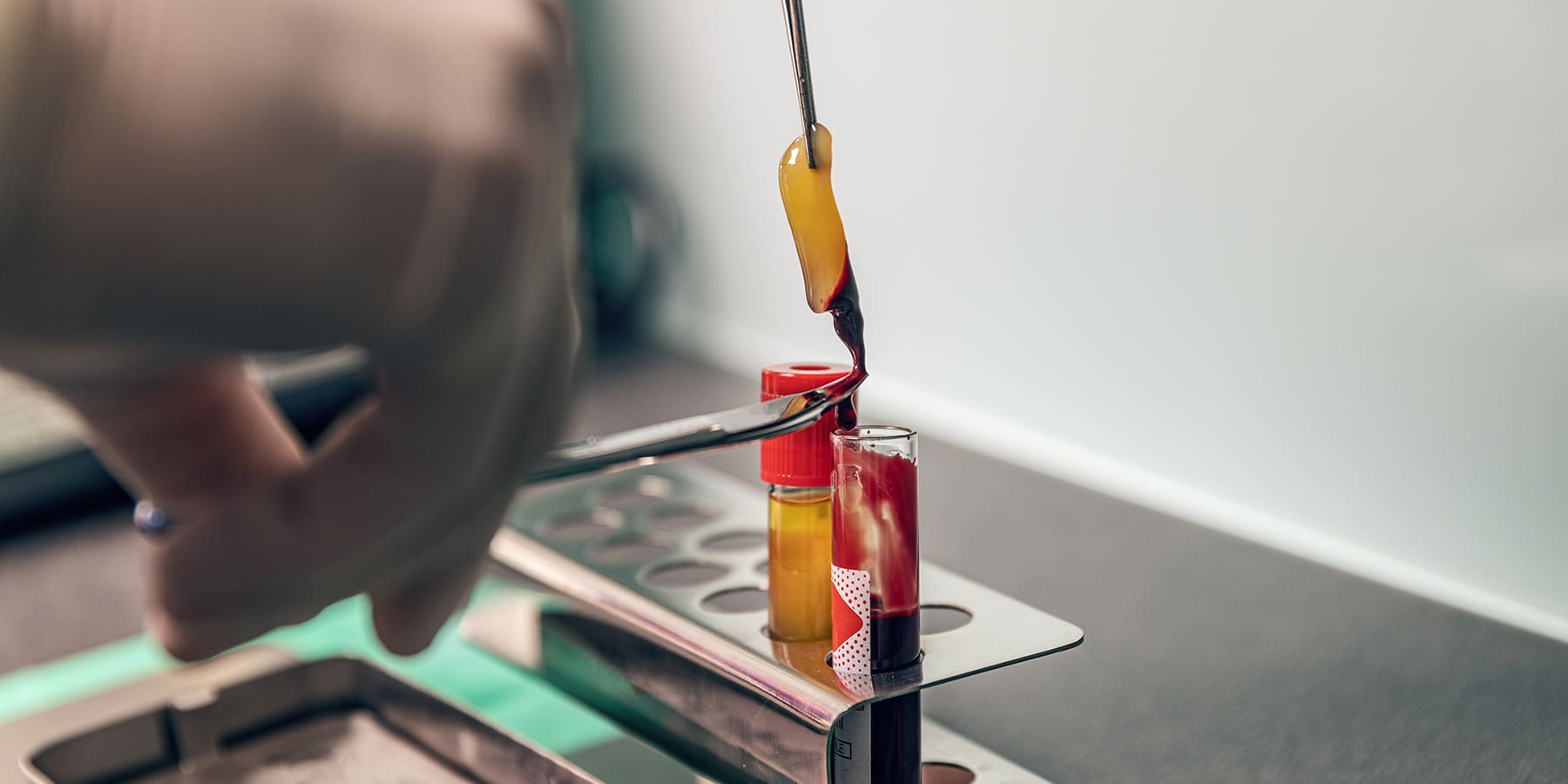Reviewed By Dr. Robert Barron, DMD
Reading Time: 3 minutes
If you are preparing for oral surgery, recovery is often top of mind. How long will it take, and is there a way to make the healing process smoother?
Platelet-Rich Fibrin (PRF) is a natural treatment that supports faster healing after dental procedures. At Concord Oral Surgery, Dr. Robert Barron uses PRF to help patients recover more comfortably following dental implants, bone grafts, and wisdom tooth removal.
Table of Contents
Key Takeaway
You are a strong candidate for PRF if you are having a tooth extracted, getting a dental implant, need a bone or gum graft, or prefer a natural healing option. Only patients with certain blood conditions or on blood-thinning medications may not qualify.
What is PRF Treatment?
PRF, or Platelet-Rich Fibrin, is a concentration of healing and growth factors created from a small sample of your own blood. Think of it as creating a super-powered, natural band-aid that we place directly in the surgical site to jump-start the healing process. It’s your body’s own healing potential, concentrated and optimized.
Your blood is processed in a specialized centrifuge to separate and concentrate the platelets, white blood cells, and fibrin, the key components your body uses for natural healing and tissue regeneration.
The key benefits of PRF dental treatment include:
- Reduced inflammation and post-operative discomfort
- Faster tissue regeneration and wound healing
- Lower risk of complications such as infection or dry socket
- Enhanced bone and soft tissue formation
- Completely natural with no synthetic additives
The PRF Candidate Checklist
Most patients undergoing oral surgery are excellent candidates for PRF treatment. Here’s how to determine if you’re a good fit:
✓ You Are Having a Tooth Extracted
PRF is particularly beneficial for tooth extractions, especially after wisdom teeth removal. The concentrated healing factors help reduce the risk of dry socket, a painful condition that can significantly delay recovery.
PRF after tooth extraction promotes better bone healing in the extraction site, which is crucial if you’re considering a future dental implant in that location.
The fibrin matrix acts as a natural scaffold, supporting new tissue growth and maintaining the integrity of the extraction site during the initial healing period.
✓ You Are Getting a Dental Implant
For dental implant procedures, PRF treatment enhances the integration process between your implant and jawbone (osseointegration).
This biological enhancement can lead to more predictable implant success and potentially shorter healing times. The growth factors in PRF stimulate bone formation around the implant, creating a stronger foundation for your new tooth.
✓ You Need a Bone or Gum Graft
PRF acts as a bioactive scaffold during bone grafting and soft tissue procedures. It provides essential growth factors that support new tissue development while serving as a natural matrix for cellular attachment and proliferation.
Whether you’re undergoing sinus lift procedures, or gum grafting, PRF can significantly enhance the success and healing timeline of these treatments.
✓ You Want a Holistic, Natural Healing Option
Because PRF is created entirely from your own blood, there are no synthetic additives, preservatives, or risk of allergic reactions. This makes it an ideal choice for patients who prefer natural treatment options.
The autologous nature (from your own body) of PRF treatment eliminates any risk of disease transmission or immune rejection, making it one of the safest options available in oral surgery.
So, Who Isn’t a Candidate?
While most patients are excellent candidates for PRF, there are some considerations. Patients with certain blood-clotting disorders or those taking specific blood-thinning medications may not be suitable candidates. Additionally, patients with severe anemia or certain blood-related medical conditions require individual evaluation.
Dr. Barron conducts a thorough health history review during your consultation to ensure PRF treatment is safe and appropriate for your specific situation. This personalized approach ensures optimal outcomes and patient safety.
The Process is Simple and Quick
Many patients are pleasantly surprised by how straightforward the PRF process is. Here’s what to expect:
- Blood collection: A simple blood draw at the beginning of your appointment, similar to routine lab work.
- Processing: Your blood is placed in a specialized centrifuge for approximately 8 minutes.
- Preparation: The concentrated PRF is carefully collected and prepared for application.
- Application: Your oral surgeon places the PRF directly into the surgical site
Experience Advanced Healing at Concord Oral Surgery
PRF treatment offers a safe, natural way to support healing after oral surgery. At Concord Oral Surgery, Dr. Robert Barron provides this option to help patients recover with less discomfort and improved outcomes.
To book an appointment at our oral surgery office in Vaughan, ON, call (905) 669-2616. We are located at 3300 Highway 7 West, Suite 805 Vaughan, ON.
FAQS
Does PRF prevent dry socket?
PRF helps reduce the risk of dry socket by protecting the extraction site and supporting faster healing. The fibrin matrix covers the wound like a natural bandage, keeping the blood clot stable and promoting bone and tissue regeneration.
Where can I find an oral surgeon near me?
If you live in Vaughan or the Greater Toronto Area, visit Concord Oral Surgery. Dr. Robert Barron uses PRF treatment to improve recovery after dental implants, bone grafts, and wisdom tooth removal.

